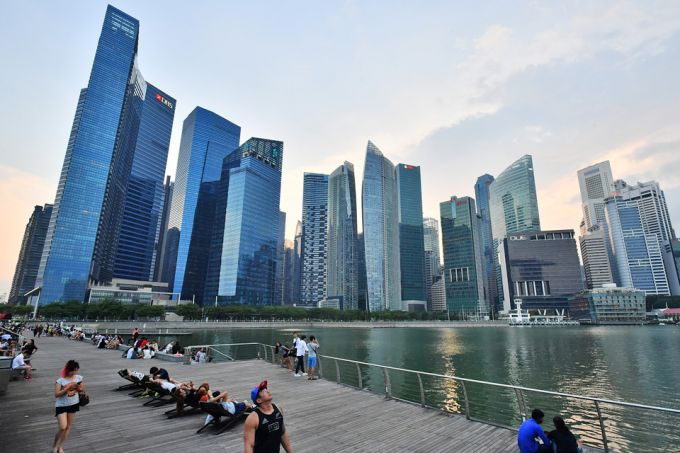Singapore an emerging hot market for private equity real estate funds
The recovery in office rents here may be turning Singapore into one of the most popular markets in the region for private equity real estate funds.
CBRE estimates that some US$6 billion may be deployed in Singapore from this year to 2020, with about US$4 billion having been invested here by these funds between 2014 and the third quarter of 2017.
The latest quarterly figures from the Urban Redevelopment Authority last week showed office rents here rose at a faster clip in the fourth quarter and clocked a full-year increase of 0.4 per cent, in a reversal from an 8.2 per cent decline in 2016.
But CBRE also cautioned that pricing is beginning to reflect improved rental growth. In a report released on Wednesday, it projected that between 2018 and 2020, the top three recipients of capital from closed-end real estate funds focused on the Asia-Pacific would be Australia, Japan and China.
Between 2014 and Q3 2017, US$42 billion of capital was raised by such funds, which translates to around US$116 billion in purchasing power after factoring in leverage. Since then, US$63 billion (54 per cent) of the capital has been deployed, with the three countries bagging nearly 70 per cent of the total investment.
Core or core-plus funds have focused on Australia, but Japan is the second most popular destination for all types of investors as favourable lending terms are easily available.
China and Hong Kong attracted strong interest from value-add and opportunistic funds as low yields compel investors to move up the risk curve to achieve target returns.
This trend has also emerged in Singapore, where fund managers invest in office buildings with upgrading potential to capture occupiers’ flight to quality, CBRE said.
CBRE Research estimates that funds possess US$53 billion to be invested in the region over the next three years. Of this, 70 per cent sits with opportunistic funds, 20 per cent with value-added funds, and the balance, with core or core-plus funds.
Core investments are seen as the least risky; they often target stabilised, fully leased, secure investments in major core markets. Value-added investments target properties with in-place cash flow, but seek to grow that over time by making improvements to or repositioning the property. Opportunistic real estate investments follow the value-add approach, but take on more risk.
Given the investment period of closed-end real estate funds, around US$22 billion will have to be invested in the next two years; if not, the funds would need to apply for an extension or return the capital to investors.
“The acute lack of stock and low property yields will necessitate greater creativity among fund managers and require them to move up the risk curve,” CBRE said.
CBRE Research still expects Asia-Pacific prime office, retail and industrial yields to be stable this year.
On why Australia, Japan and China could again be the top Asia-Pacific destinations for capital deployment in the next three years, CBRE said that signs of a stabilising economy in China may encourage the return of funds to Tier-1 cities and beyond; Japan remains attractive due to the attractive yield spread, though a lack of stock for sale in Tokyo is a big hurdle.
In Australia, Sydney and Melbourne will remain the main focus for funds, but interest in secondary cities such as Brisbane and asset classes such as student housing is growing.
CBRE Research said it believes core-funds are looking mainly at office and logistics assets and niche sectors that provide long lease terms, such as data centres and cold storage.
For value-add funds willing to take on some leasing risk, CBRE Research said Kowloon East in Hong Kong, Seoul and decentralised areas of Shanghai offer opportunities. Such funds may also provide debt to real estate development projects or to completed properties.
As for opportunistic funds, they will have to be more creative in their strategy as it will become more challenging to achieve high returns by taking on development risk, CBRE said.
Source: http://www.businesstimes.com.sg/real-estate/singapore-an-emerging-hot-market-for-private-equity-real-estate-funds


 Thailand
Thailand




